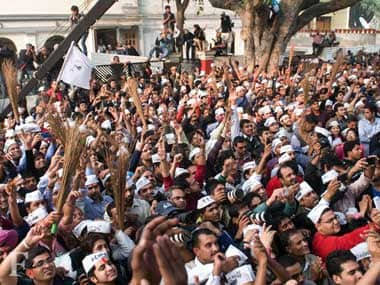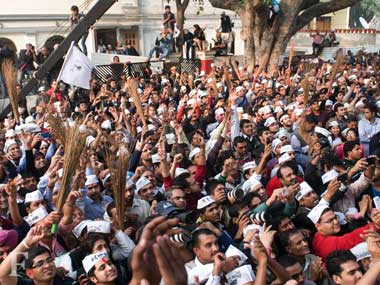Since the Lokpal Bill fiasco in parliament in December 2011, citizens and the media have been viewing the two largest national parties as two sides of the same coin. There doesn’t seem to be much to separate one from the other, except for the ‘secularism’ that the Congress claims. Now, as the Aam Aadmi Party stunned the nation with their 28 seats in Delhi, both national parties are trying to figure out how they can become more like the AAP. In short, neither can – because AAP has a Unique Selling Proposition (USP). USP is defined as “The factor or consideration presented by a seller as the reason that one product or service is different from and better than that of the competition.” As with any product, what the consumer expects of the product changes from time to time. When toothpaste was first marketed, all consumers wanted was white teeth. Later, whiteness became hygiene; the need moved to strong teeth and healthy gums. Even later, fresh breath became the need. Today, toothpastes sell on their ability to protect the mouth against germs. [caption id=“attachment_1278737” align=“alignleft” width=“380”]  AAP activists celebrate after their victory in Delhi. Naresh Sharma/ Firstpost[/caption] When it comes to the political party ‘market’ in India, the Congress is selling ‘secular’ and ‘socialist’ and the BJP ‘development’. What they fail to see is that, in today’s environment, these promises are dismissed as hygiene, much as whitening ability or freshness in breath is seen as hygiene in toothpastes. In a country like India, whichever party is in power needs to be evenhanded in dealing with various segments of society, they are expected to develop infrastructure, create jobs, and so on. There is nothing that citizens expect from the Congress that they do not expect of from the BJP – or from the AAP. In this non-differentiated market, the AAP sells itself on a clear differentiator – honesty. One would have thought that honesty would be hygiene as well – but all existing political parties have neither thought of it nor, if they did, do they behave in a manner so as to make the claim believable. The AAP, in its manifesto for the Delhi elections, promised all kind of development and any number of sops, much like the Congress and the BJP did. What brought them attention and votes is that they promised, additionally, an honest government. More importantly, the promise was believable. As with all USPs, time will either allow the USP to remain one or destroy it. Till the AAP demonstrates lack of honesty or till the Congress or the BJP demonstrates a clear commitment to honesty, the AAP will stand differentiated – and be a serious contender for increasing marketshare – which means more and more votes each time they go to the electorate.
In a non-differentiated market, the AAP sells itself on a clear differentiator – honesty.
Anant Rangaswami was, until recently, the editor of Campaign India magazine, of which Anant was also the founding editor. Campaign India is now arguably India's most respected publication in the advertising and media space. Anant has over 20 years experience in media and advertising. He began in Madras, for STAR TV, moving on as Regional Manager, South for Sony’s SET and finally as Chief Manager at BCCL’s Times Television and Times FM. He then moved to advertising, rising to the post of Associate Vice President at TBWA India. Anant then made the leap into journalism, taking over as editor of what is now Campaign India's competitive publication, Impact. Anant teaches regularly and is a prolific blogger and author of Watching from the sidelines. see more


)
)
)
)
)
)
)
)
)



